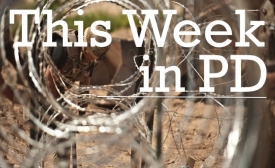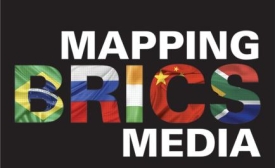russia
The Arab Summit, held recently at Sharm El-Sheikh, can be the beginning of a new phase in joint Arab action and the credibility of Arab countries if decisions are translated into reality.
Why did the US State Department sponsor international dance tours during the Cold War? An official government narrative was sanctioned and framed by the US State Department and its partner organization, the United States Information Agency (USIA—and USIS abroad). However, the tours countered that narrative.
Free Russian language courses organized by the Russian-Georgian community center, together with the Russian Foundation for Public Diplomacy named after Gorchakov, began being held in Tbilisi.
Duquesne University professor Greg Barnhisel skillfully shows how modernist art and literature was used to influence the Cold War game.
Last December, Peter Horrocks, the BBC World Service’s former director, warned that the West was losing the “information war” with Moscow as the old Cold War foe pumped out wave after wave of pro-Kremlin propaganda on its rapidly expanding radio, TV and online platforms.

Security concerns between states can hinder effective public diplomacy.
Ministers from European Union countries decided last week to work strategically to counter Russian’s propaganda offensive in Ukraine and other former Soviet states. EU countries intend to collaborate on broadcasting to give citizens in the target countries, e.g. the Baltics, an alternative to the relentless bombardment of Russian media, which produces a highly distorted version of the news aimed at Russian speakers.

Global communications scholars Kaarle Nordenstreng and Daya Kishan Thussu have published a new book Mapping BRICS Media, a comprehensive anthology that analyzes the impact of of BRICS media on the 21st century global media and communications landscape.







